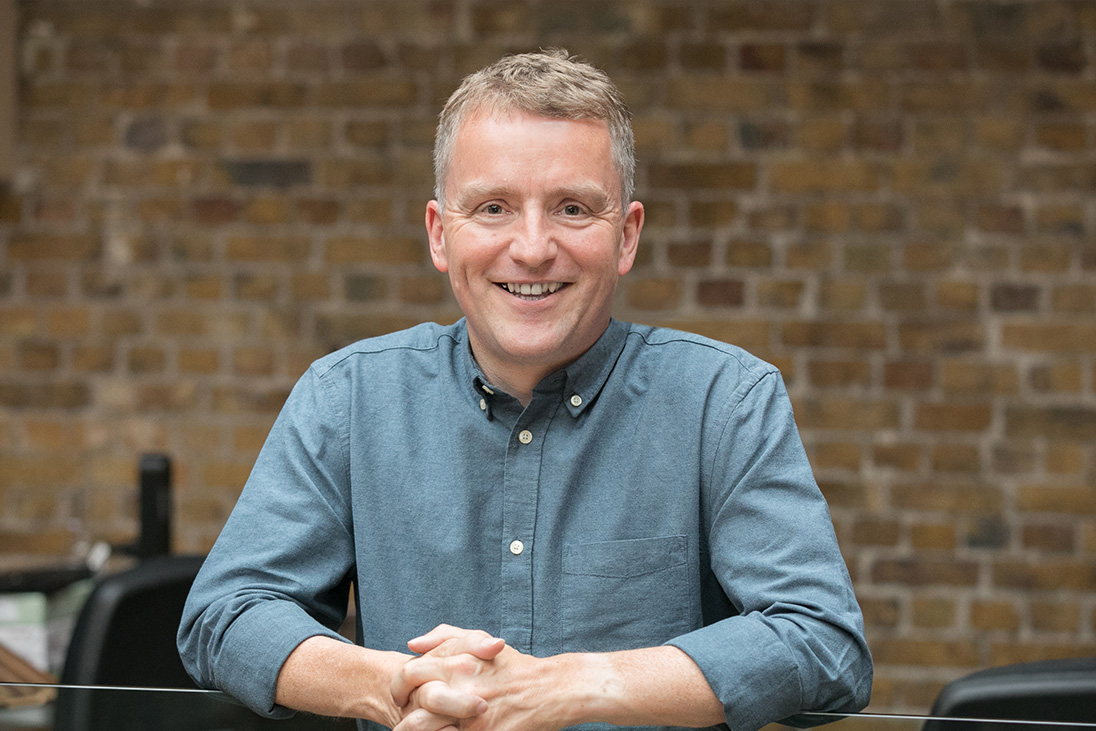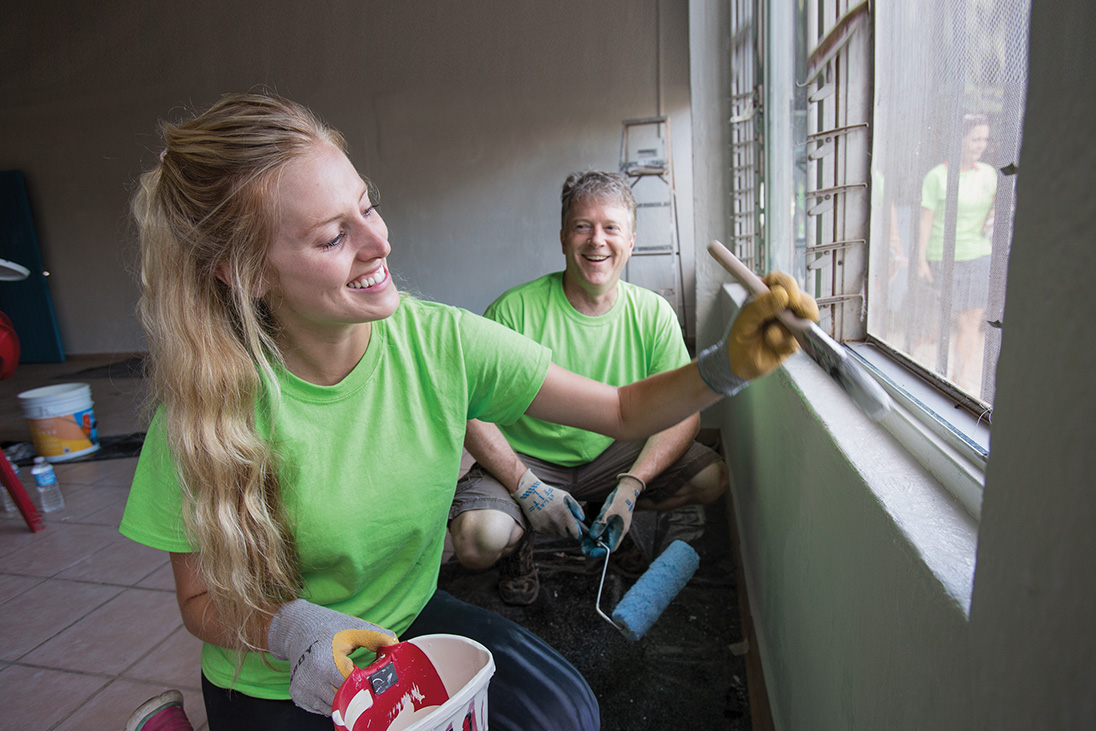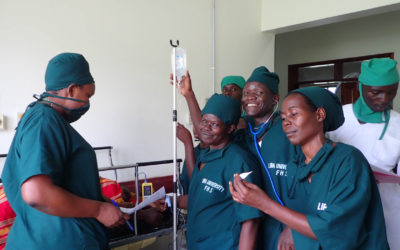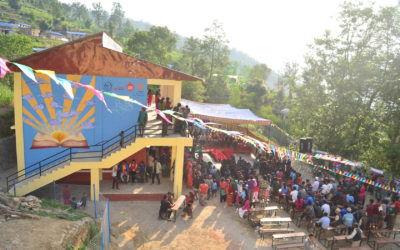When the National Council for Voluntary Organisations (NCVO) was formed a century ago, the world was a very different place.
Today, the umbrella body for the voluntary and community sector in England represents 15,000 organisations and faces the challenge of reshaping and even redefining volunteering in the 21st century.
At the helm is bubbly Lancastrian, Karl Wilding, who has been with NCVO since 1998 when he joined as a research assistant.
“NCVO has done many things over the years,” he recalled. “We built thousands of village halls in the inter-war period, which are now looked after by Action with Communities in Rural England.
“Immediately after the Second World War, our work with giving people help and advice was the start of what became Citizens Advice. Help the Aged came out of the Old People’s Welfare Committee that was part of NCVO.


At the helm of NCVO is, Karl Wilding, who has been with the organisation since 1998 when he joined as a research assistant.
“However, we are a very different organisation from the one which was established 100 years ago, and that is only right.”
As clubs, societies and organisations struggle to find new blood to sustain their work, the narrative is that people today don’t care about causes or the community around them. Karl describes that notion as “rot”.
People, and young people, in particular, want to volunteer. The challenge, he suggested, is that organisations such as Rotary have to make sure they are relevant to those people who want to change the world around them.
“If the world is still changed by individual acts of kindness, by people getting involved and doing things together, then we have got to make sure that we are relevant to them,” insisted Karl. “We have to be relevant to how they want to change the world and how they want to do things.
We built thousands of village halls in the inter-war period, which are now looked after by Action with Communities in Rural England.”
“Everyone is carrying round with them a pocket computer, or a mobile phone, which allows them to do things like renew their library books without going into the library.
“That is all very good, but this has led to a culture where people not only expect to be able to do that on their phone but they also expect an instant response.
“If you want to volunteer, why can’t you go on an app to find out how?
“People won’t want to receive a letter in the post or an appointment three weeks later, they will want to do the transaction side immediately.”
After all, said Karl, volunteering is good for the soul because the world is changed by charity.
He explained: “It is very easy in these difficult times to be cynical about the human spirit, or the world we live in when we read in the newspapers about divisions in society.


People, and young people, in particular, want to volunteer. The challenge, he suggested, is that organisations such as Rotary have to make sure they are relevant to those people who want to change the world around them.
“But there is still something brilliant about us all.
“And where I feel really positive, whether it is about Rotary or other charities, is that we are vehicles for people to come together and to multiply those individual acts of kindness.”
If volunteering is to appeal to a younger generation, then the way it is organised will have to change, predicted Karl.
Young people today don’t necessarily use the word ‘volunteering’ – instead it is ‘social action’, he pointed out.
Indeed, the whole concept of so-called volunteering in the 21st century is different.
The younger generation want to get involved, but they want to do it differently.
“Whereas my generation was familiar with the model where you stayed with the same organisation for many years, where you were committed and loyal by giving large chunks of time, that’s not how people want to get involved anymore,” added Karl.
“There is a lot less loyalty now.
“If there is loyalty, then it is to a cause, not to an organisation, so we have to be clear about the cause.
If volunteering is to appeal to a younger generation, then the way it is organised will have to change”
“People do not want to commit at all, so you have got to be able to offer volunteering opportunities where, if you get involved, you are not saying you are going to get involved for the rest of the year.
“They want flexibility in terms of timing and they want to give smaller chunks of time.
“There is an expression ‘micro-volunteering’ – people giving smaller amounts of time with no commitment.
“It could even amount to how can we help people volunteer without having to be at the organisation? Can they volunteer remotely?
“So young people want to get involved, but they want to do it differently.
This is probably the hardest time ever if you’re running a charity or mobilising and supporting volunteers.
We’ll do everything we can to help you. This thread lists some of our practical advice for you. All free. No catches.
We are @ncvo. We support charities and volunteering. https://t.co/27LXjpmZHt
— Karl Wilding @Karlwilding@mstdn.social (@karlwilding) March 30, 2020
“A challenge for us as a sector is how we provide opportunities which fit with how people want to get involved.
“We have to think about people’s motivations and why they get involved.
“Sometimes we forget that as human beings, one of the reasons we volunteer is because people want a social experience, where they can have enjoyment and fun.
“And Rotary will understand that better than anyone.”
For more information visit the NCVO website.


























































